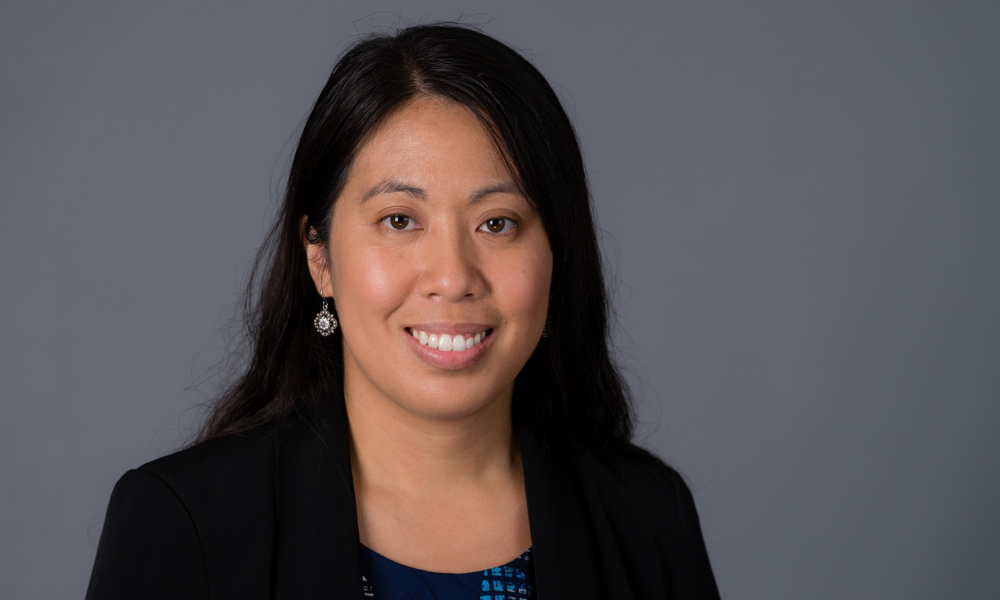
Rebecca Baggiano finds that those who don't fit traditional views of a leader are often overlooked

Young lawyers from culturally and linguistically diverse backgrounds and working parents often face barriers to career opportunity because they don’t fit outdated and traditional views of what leaders should look like, Fragomen special counsel and 2023 Elite Woman Rebecca Baggiano has observed.
A child of refugees who fled to Australia following the Vietnam War, Baggiano has a close connection to the plight of immigrants – something that led her to pursue immigration law. Her aim has always been to use whatever position she is in to help others.
In this interview, Baggiano talks pro bono work, advancements in technology, and why she might have gone into graphic design.
Following the Vietnam War, my grandparents and parents came to Australia as refugees. Their journey to Australia sparked a very strong interest in immigration law for me as it was always a topic of discussion in my household. I knew as soon as I graduated from school that I wanted to practice immigration law.
Fast forward to today, I am still very grateful that, in my day-to-day work, I’m able to help other people navigate the Australian visa system and overcome hurdles to get them into Australia. Whether it’s an individual coming into Australia as an employer-sponsored intra-corporate transferee, a partner to an Australian citizen or as a humanitarian entrant, I still feel that same buzz when I see those positive decisions coming through.
Fragomen is a proud partner of Talent Beyond Boundaries (TBB), an organisation that matches skilled refugees with companies in need of semi-skilled and skilled labour. In conjunction with the Department of Home Affairs, a TBB Refugee Labour Agreement pilot was established to provide Australian businesses with the opportunity to fill their skills shortages through existing skilled visa programs. It has been really exciting to see this innovative solution put forward to help alleviate Australia’s labour shortages, all while providing safe passage to skilled refugees to live in Australia. We continue to support and advocate for the use of this program to our corporate clients and hope that it can one day become a permanent fixture under Australia’s skilled migration program.
Over the last year, I have been proud to take on pro bono work for some of Fragomen’s corporate client base, including providing assistance with humanitarian visa applications for a client’s employees based in a conflict zone and producing newsletters for employees from refugee backgrounds on all matters relating to protection and humanitarian visas. It has been a privilege to be able to give back to our clients and their employees, but also help them to support and grow diverse and inclusive workplaces.
I would love for the profession as a whole to place more focus on having ongoing mentoring and sponsorship programs for young lawyers from culturally and linguistically diverse backgrounds and working parents. I find that these two groups often face additional challenges in being seen or are overlooked when it comes to career opportunities due to them not fitting the outdated and traditional views of what a leader should look like, or because of their reduced work pattern.
Several years ago, Fragomen implemented a mentoring program which has allowed staff at all levels to connect with senior leaders from around the region. I’ve seen the invaluable guidance and wonderful opportunities that have come out of this program and the confidence that it instils in participants.
With the continual advancement of artificial intelligence and automated decision-making technologies, coupled with the Department of Home Affairs’ wish to simplify the migration process for prospective migrants and many law firms moving rapidly towards automation, I am watching, with great interest, the impact that these technologies will have on the roles of Australian lawyers.
I’m of the view that we need to find that balance where we have the right level of governance in place to ensure that we are developing systems that are automated and efficient but still have critical input from human lawyers to manage complex issues and allow for human intervention where required. This balance will be particularly important in immigration law where individuals’ lives are heavily impacted by immigration outcomes.
The Australian government is embarking on what it calls a once-in-a-generation reform of the entire migration system. Working in Fragomen’s government relations practice, I am looking forward to assisting our clients in advocating for flexible and fair policies which will help to rebuild an efficient skilled migration program to address Australia’s skilled labour shortages. Advocacy in this space always takes time, however, when you see certain policies being implemented into immigration regulations, it is always rewarding.
In another life, if I had not become an immigration lawyer, I would have embarked on either a career in politics or graphic design. I have always wanted a career where I could use my position to help others or bring joy through art and creativity.